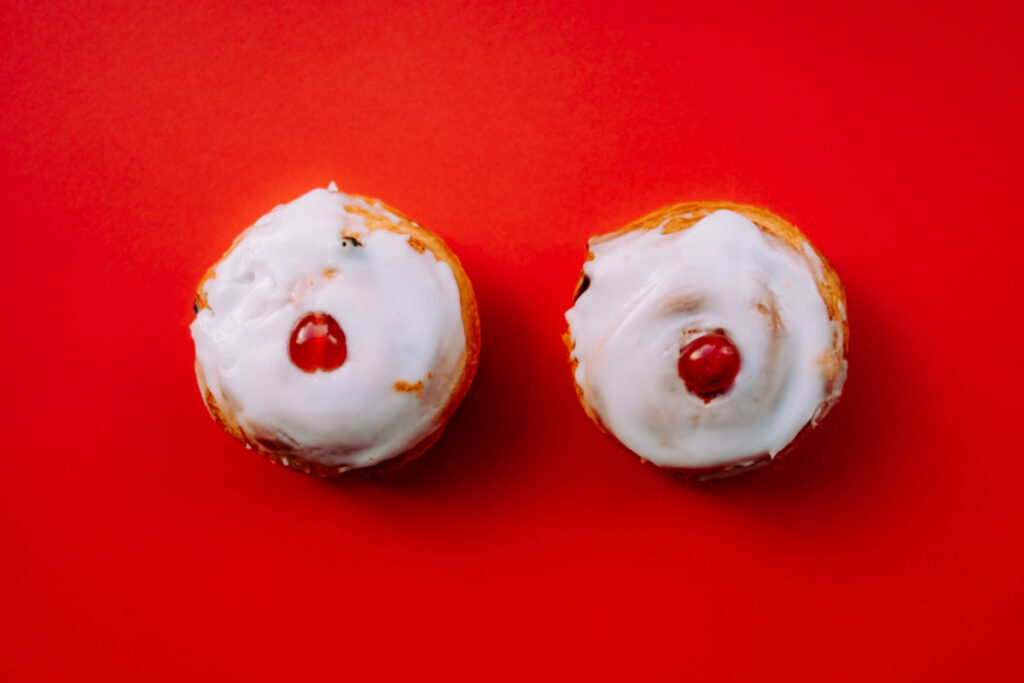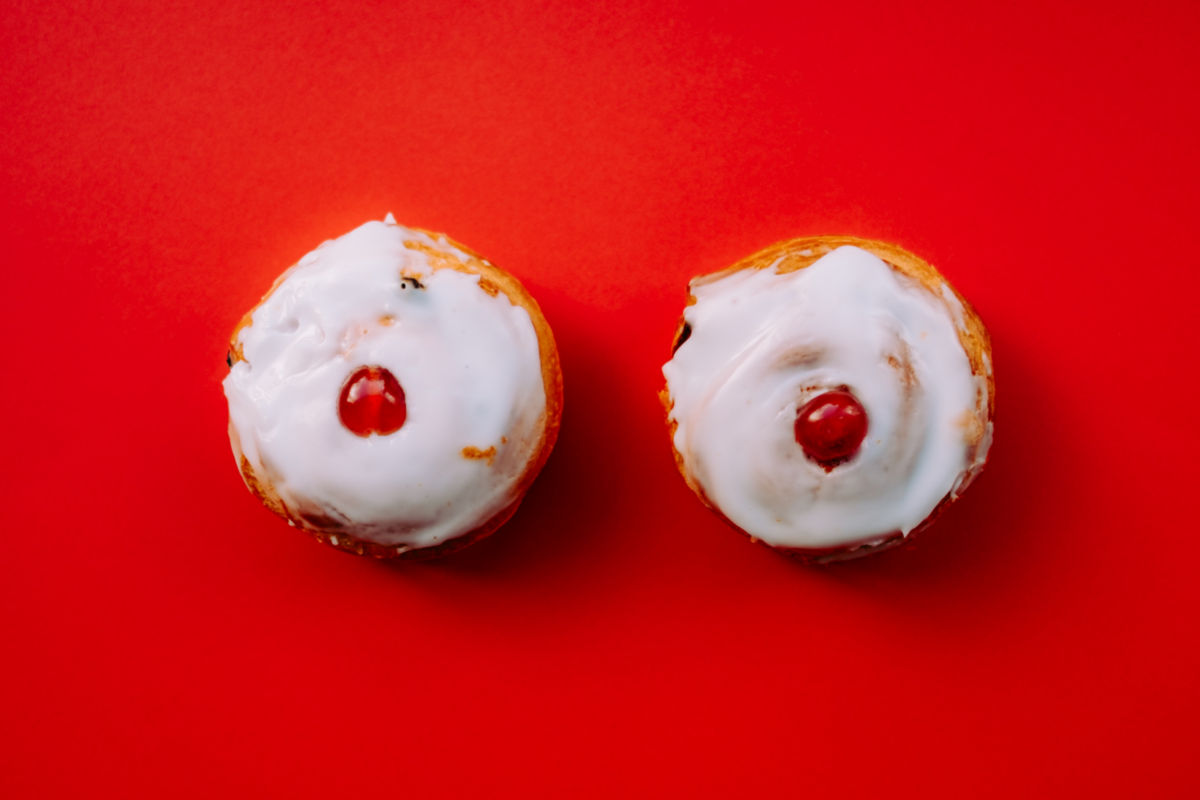
Buns and Boobs: Exploring the Cultural Significance and Linguistic Nuances
The phrase “buns boobs” immediately triggers a range of reactions, from amusement and discomfort to outright offense. Understanding why requires a deep dive into the cultural context, linguistic evolution, and societal attitudes surrounding these terms. This article aims to explore the multifaceted nature of the phrase “buns boobs,” examining its usage, implications, and the broader conversations it sparks about body image, objectification, and language itself.
Origins and Evolution of the Terms
Let’s begin by dissecting the individual words. “Buns,” in this context, typically refers to the buttocks. Its usage is often informal and can carry connotations ranging from playful to vulgar, depending on the speaker and the situation. The etymology of “buns” is somewhat debated, but it’s believed to be a diminutive of “bun,” referring to a small, round cake, drawing a visual comparison to the shape of the buttocks. This association contributes to the term’s often lighthearted but potentially objectifying nature.
“Boobs,” on the other hand, is a slang term for breasts. Like “buns,” it’s considered informal and can be perceived as either endearing or offensive depending on the context. The origin of “boobs” is less clear, but it’s generally accepted as a shortened, simplified form of “bosom,” an older and more formal term for breasts. The casual and direct nature of “boobs” contributes to its potential for objectification, particularly when used in a purely sexualized manner.
Cultural Significance and Usage
The pairing of “buns boobs” amplifies the potential for objectification. The phrase reduces a person to specific body parts, ignoring their individuality and inherent worth. The combination is frequently found in advertising, entertainment, and online content, often used to attract attention or generate clicks. However, the intent and reception of such usage vary widely.
In some contexts, “buns boobs” can be used playfully or humorously, particularly within close relationships or among friends who share a similar sense of humor. However, even in these situations, it’s crucial to be mindful of the potential for misinterpretation or offense. What might be considered a harmless joke by one person could be deeply hurtful to another.
The use of “buns boobs” in marketing and media is particularly problematic. When used to sell products or promote content, it reinforces the idea that women’s bodies are primarily objects of sexual desire. This can contribute to negative body image issues, particularly among young people who are constantly bombarded with unrealistic and often unattainable beauty standards. The phrase “buns boobs” in these contexts perpetuates a cycle of objectification and reinforces harmful stereotypes.
Objectification and Body Image
The objectification of women’s bodies, often exemplified by phrases like “buns boobs,” has significant consequences for mental health and well-being. Constant exposure to idealized and sexualized images can lead to feelings of inadequacy, anxiety, and depression. Women may feel pressured to conform to unrealistic beauty standards, leading to unhealthy dieting habits, excessive exercise, and even cosmetic surgery.
Furthermore, objectification can contribute to a sense of disempowerment. When women are valued primarily for their physical appearance, their intelligence, skills, and accomplishments are often overlooked. This can limit their opportunities and hinder their personal and professional growth. The casual use of phrases like “buns boobs” normalizes this objectification and perpetuates a culture of inequality.
Linguistic Nuances and Contextual Interpretation
The interpretation of “buns boobs” is heavily influenced by context. The tone of voice, the relationship between the speaker and the listener, and the surrounding environment all play a role in determining whether the phrase is perceived as playful, offensive, or simply descriptive. For example, a doctor might use the terms “buttocks” and “breasts” in a clinical setting without causing offense, while the same terms used in a sexually suggestive manner would be considered inappropriate.
The use of euphemisms and slang terms like “buns boobs” often serves to soften the impact of potentially sensitive topics. However, this can also contribute to a lack of clarity and understanding. It’s important to be aware of the potential for misinterpretation and to choose language that is both accurate and respectful.
The Role of Media and Advertising
Media and advertising play a significant role in shaping societal attitudes towards body image and objectification. The constant bombardment of sexualized images, often featuring phrases like “buns boobs,” can desensitize individuals to the harmful effects of objectification. It’s crucial for media outlets and advertisers to be mindful of the messages they are sending and to avoid perpetuating harmful stereotypes.
There is a growing movement towards more inclusive and representative portrayals of bodies in media. This includes showcasing a wider range of body sizes, shapes, and ethnicities. By celebrating diversity and challenging traditional beauty standards, media can help to promote positive body image and reduce the pressure to conform to unrealistic ideals. Avoiding the casual use of terms like “buns boobs” is a small but important step in this direction. [See also: Body Positivity in Media]
Promoting Respectful Communication
Creating a more respectful and inclusive society requires a conscious effort to challenge objectifying language and promote positive body image. This begins with being mindful of the words we use and the messages we are sending. Avoiding phrases like “buns boobs” and instead using more respectful and descriptive language is a simple but effective way to contribute to a more positive and equitable culture.
Education is also key. By teaching young people about the harmful effects of objectification and the importance of respecting others’ bodies, we can help to create a generation that is more aware and empathetic. This includes challenging traditional gender roles and promoting the idea that everyone deserves to be valued for their intelligence, skills, and character, not just their physical appearance. [See also: Gender Equality in Education]
Ultimately, the goal is to create a society where everyone feels comfortable and confident in their own skin. This requires a collective effort to challenge harmful stereotypes, promote positive body image, and use language that is both accurate and respectful. While the phrase “buns boobs” may seem harmless on the surface, it represents a deeper issue of objectification and inequality. By being mindful of our language and challenging harmful stereotypes, we can create a more positive and equitable future for all. The casual use of “buns boobs” contributes to a culture that devalues individuals based on their physical attributes.
It’s important to remember that words have power. The language we use can shape our perceptions and influence our attitudes. By choosing our words carefully, we can help to create a more respectful and inclusive society. Let’s strive to use language that celebrates diversity, promotes positive body image, and values individuals for who they are, not just what they look like. The focus should be on promoting respect, not perpetuating harmful stereotypes through phrases like “buns boobs.” The impact of such language on self-esteem and body image is significant and should not be underestimated. Let’s move towards a more mindful and respectful way of communicating about bodies.
The discussion surrounding “buns boobs” highlights the complexities of language and its impact on society. While seemingly innocuous, the phrase carries significant cultural baggage related to objectification and body image. By understanding the nuances of this language and actively promoting respectful communication, we can contribute to a more equitable and positive future. We must challenge the normalization of phrases like “buns boobs” to foster a healthier and more inclusive environment for everyone. The continued use of “buns boobs” reinforces harmful stereotypes and contributes to a culture of objectification. Let’s be more mindful and choose our words with care. This is especially important in media and advertising, where the impact of such language is amplified. The goal should always be to promote respect and celebrate diversity, rather than reducing individuals to their physical attributes through phrases like “buns boobs.” The pervasive nature of such language necessitates a conscious effort to challenge and replace it with more respectful alternatives.
In conclusion, while the phrase “buns boobs” might appear trivial, it underscores the pervasive issue of objectification and the importance of mindful communication. By understanding the cultural significance and linguistic nuances of such terms, we can actively promote respect, challenge harmful stereotypes, and contribute to a more inclusive and equitable society. Let’s choose our words carefully and strive to create a world where everyone feels valued for who they are, not just what they look like. The impact of language on body image and self-esteem is profound, and it is our collective responsibility to use it responsibly. The phrase “buns boobs” serves as a reminder of the ongoing need to challenge objectification and promote respectful communication. Let us be more mindful of the messages we send and strive to create a more positive and equitable future for all. The casual use of “buns boobs” perpetuates a cycle of objectification and reinforces harmful stereotypes. It’s time to break that cycle and choose our words with care.

